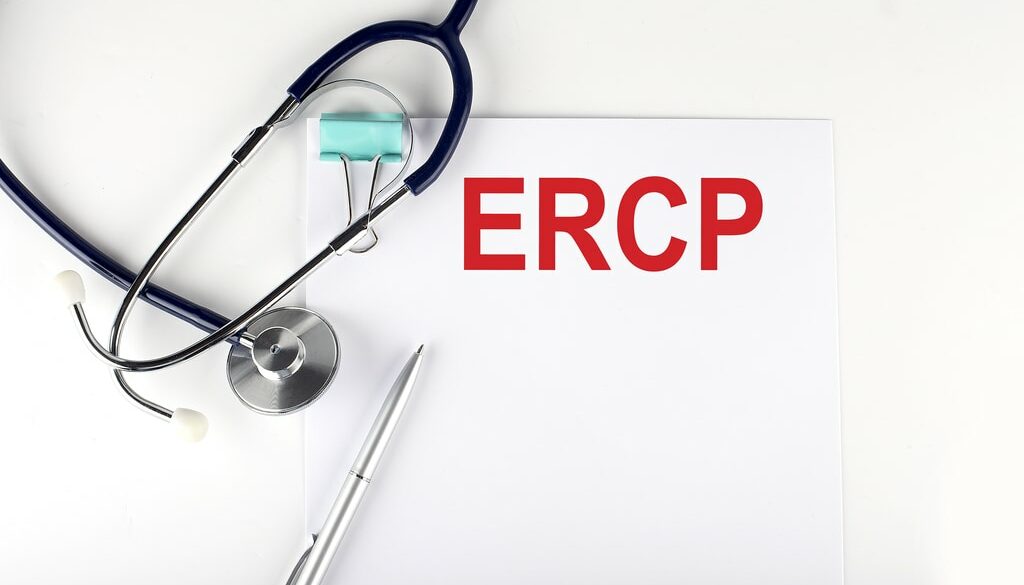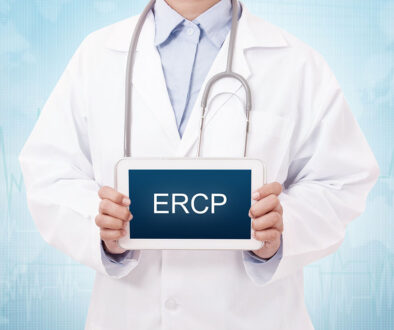What Is an ERCP and When Would You Need One?
What is an ERCP?
Endoscopic retrograde cholangiopancreatography.
We know. That’s a mouthful. That’s why the procedure is known by its acronym, ERCP. An ERCP is an important medical tool for diagnosing and treating pancreatitis as well as other conditions such as:
- Gallstones
- Inflamed gallbladders
- Bile duct blockages
- Pancreatic cancer
In this blog, we’ll concentrate on answering the question “What is an ERCP?” and provide all the information you need to know.
We’ll take a closer look at ERCP surgery, why gastroenterologists perform it, what to expect, and how it helps those who have been diagnosed with pancreatitis or other similar conditions.
What Is an ERCP Surgery?
As we mentioned earlier, an ERCP is an important diagnostic tool that our gastroenterologists in Raleigh use to help treat patients with a variety of conditions. It uses a thin, flexible, lighted tube called an endoscope.
During ERCP surgery, your gastroenterologist first numbs your throat so you will feel minimal discomfort. The endoscope is then gently inserted into your mouth and guided down the esophagus and stomach until it reaches the small intestine.
In order to make it easier for the doctor to see your organs, he or she pumps air through the endoscope. Then, a dye is injected. This dye highlights the organs on an X-ray. This enables your gastroenterologist to detect and diagnose problems.
What Is an ERCP—Is it An Inpatient or Outpatient Procedure?
While there may be a few exceptions, in general, ERCP is done as an outpatient procedure. While you’ll be able to go home the same day, because you’ll receive anesthesia, you need to have someone drive you home from the procedure. You cannot take a taxi or an Uber.
The ERCP takes around one to two hours.
What Is an ERCP and What Type of Treatment is Available Through ERCP?
There are several. This procedure enables your gastroenterologist to place stents if you have narrowed ducts or if they are blocked for some reason. If you have gallstones, they can be broken up and removed. If you have a tumor, we’ll be able to take tissue samples to conduct a biopsy in order to determine if it is cancer.
What Is Pancreatitis?
Pancreatitis is one of the main reasons that patients need an ERCP. Pancreatitis is redness and swelling of the pancreas. The pancreas makes enzymes to break down food and creates hormones such as insulin to send throughout your bloodstream. The pancreas is vital in controlling your body’s blood sugar level.
When your pancreas is inflamed, it could eventually lead to diarrhea, malnutrition and unintentional weight loss. It may be acute (lasting for a short time) or chronic (long-lasting).
What Is the Main Cause of Pancreatitis?
There are several causes, but the most common one is gallstones that are found in the gallbladder. Because these block ducts, enzymes can’t leave the pancreas.
Other causes of pancreatitis include:
- High triglycerides
- Abdominal injury
- Alcohol abuse
- Cystic fibrosis
- Genetic problems with the pancreas
- Smoking
- High levels of calcium in the blood
- Certain medications
- Tumors
Is ERCP Procedure Painful?
We’ve looked at “What Is an ERCP?” but you’re likely concerned about whether or not the procedure will be painful. You will be under anesthesia (“put to sleep”) and made extremely relaxed for the procedure, so pain would not be a concern.
How Long Does It Take to Recover From an ERCP?
As we mentioned earlier when answering “What Is an ERCP?” immediately after your ERCP, you’ll need someone to drive you home because you will be given anesthesia during the procedure. It may take one or two days to completely recover and for your sore throat to subside.
It’s normal to experience some bloating or mild nausea for a brief period after the procedure. You should get plenty of rest at home for the remainder of the day. Once your swallowing has returned to normal, you can return to your regular diet.
RMG Gastroenterology Provides Treatment for Residents of Raleigh and the Surrounding Areas
What is an ERCP?
It’s one of the many procedures we offer to help treat and diagnose a variety of problems and diseases.
Our facilities feature the latest in state-of-the-art equipment, but it is truly the compassionate care from our board-certified gastroenterologists that truly sets us apart. In addition to performing all routine and advanced procedures, we have also received Tier 1 recognition by Blue Cross Blue Shield and Cigna.
Our offices are conveniently located in Clayton, Raleigh, Morrisville, Smithfield, Knightdale, Henderson and Wilson.
If you need to schedule an appointment, either for a specialized procedure or a routine screening, please contact us today.


